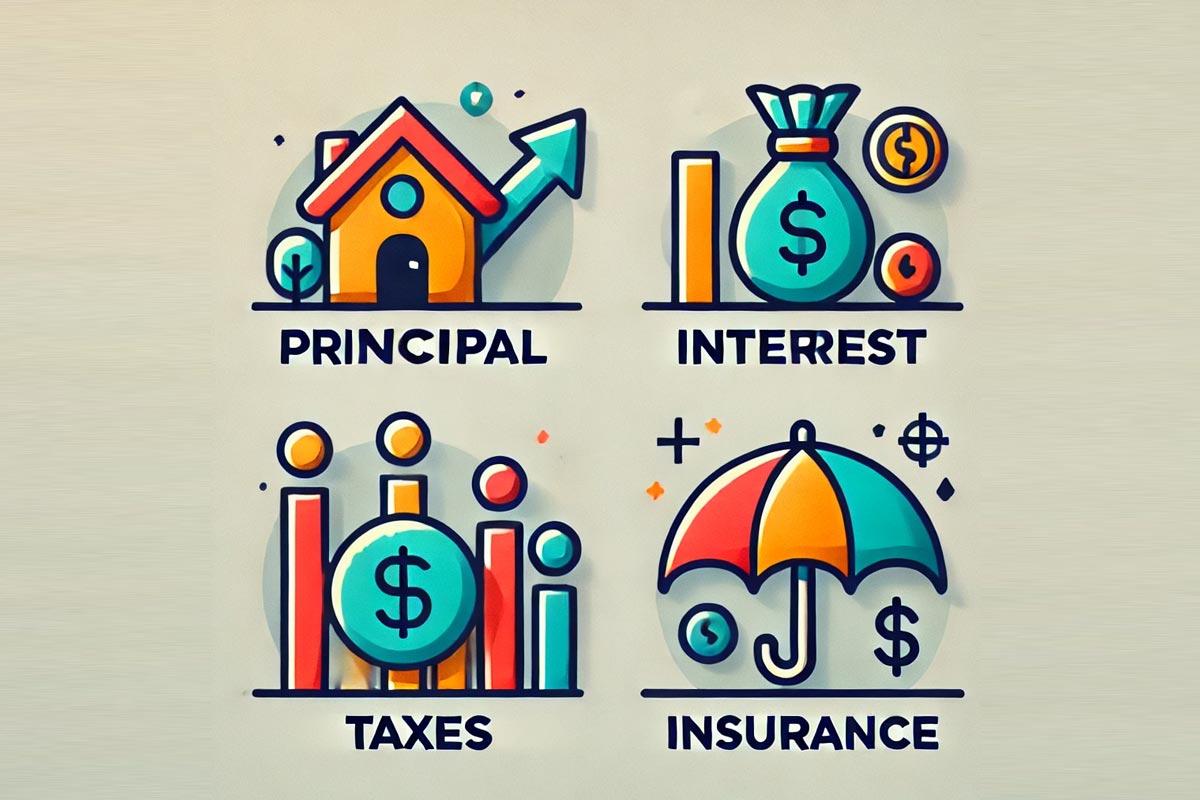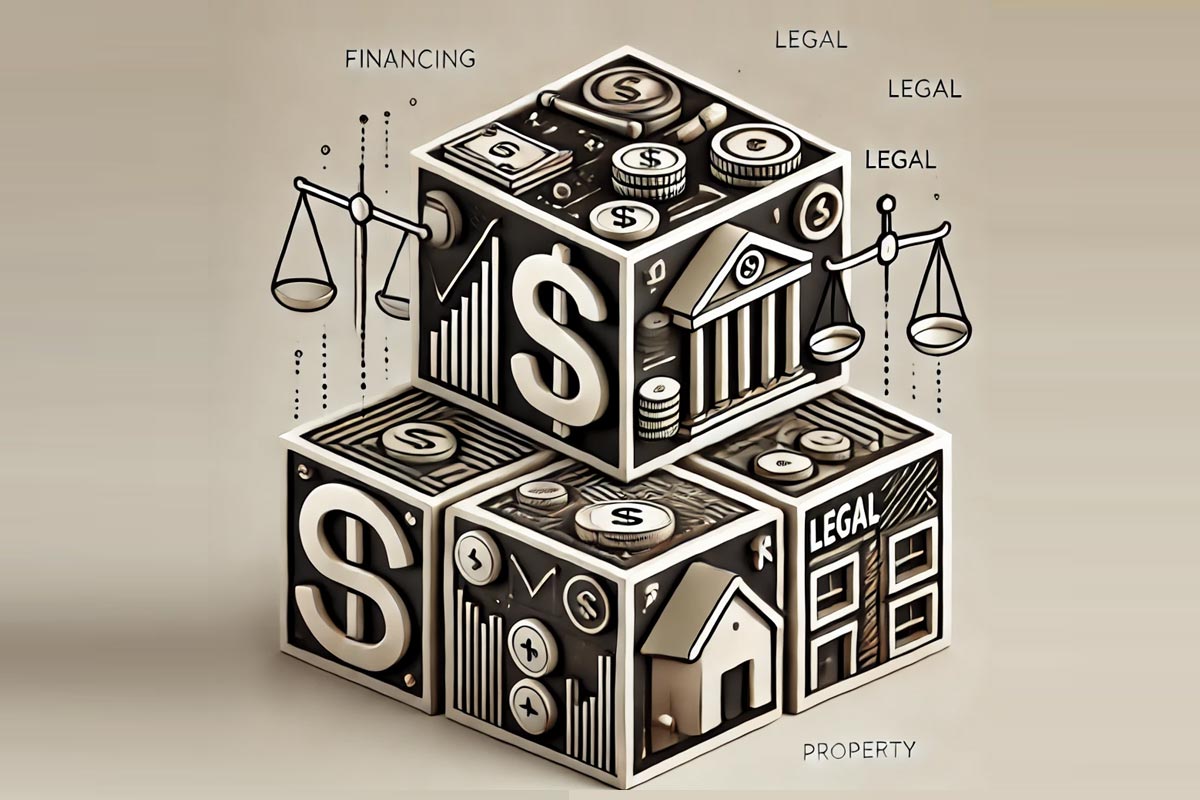Stepping into the real estate world? Whether you're a student eyeing the licensing exam, a rookie agent aiming for professionalism, or a seasoned pro sharpening your skills, mastering industry terminology is key. But with a mountain of jargon to learn, it's easy to feel overwhelmed. Fortunately, powerful memory techniques can make even the most complex real estate terms stick.
In this guide, we’ll explore powerful and practical methods—like acronyms, mnemonics, visualization, association, and more—to help you lock real estate terminology into long-term memory. These memory tricks not only make studying more effective but also help you quickly recall important concepts when you need them most.
Pro Tip:
"Real estate terms? Overwhelming at first. My secret weapons: mnemonics and visuals. Learned them, owned them, and clients saw the difference."
— Nikil Balakrishnan - Licensed Realtor and ADHI alum
Ready to transform the way you learn real estate vocab? Let’s dive in.
-
Acronyms
What Are Acronyms?
An acronym is a word or phrase formed by taking the first letter of each word in a series. By turning multiple words into a single catchy “code,” acronyms simplify recall and help the terms stick in your mind.
Common Real Estate Acronyms
- MLS – Multiple Listing Service
- Meaning: A database used by real estate brokers to share information about properties for sale.
- Context: Agents rely on the MLS to find properties for clients and to list their own sellers’ properties.
- LTV – Loan-to-Value
- Meaning: A ratio comparing the amount of a loan to the value of the property purchased.
- Context: Lenders use the LTV ratio to gauge risk; a lower LTV is seen as safer for the lender.
- PITI – Principal, Interest, Taxes, Insurance
- Meaning: The four main components of a mortgage payment.
- Context: Understanding PITI is crucial when calculating monthly home ownership costs.
- ARM – Adjustable-Rate Mortgage
- Meaning: A mortgage with an interest rate that can change periodically based on market conditions.
- Context: ARMs often start with lower rates but can rise over time, affecting monthly payments.
- HOA – Homeowners Association
- Meaning: An organization in a subdivision or condominium complex that makes and enforces rules for the properties within its jurisdiction.
- Context: Members pay HOA fees for communal services and maintenance.
Tips for Creating Memorable Acronyms
- Keep It Simple: Use one to three syllables if possible.
- Make It Personal: Incorporate your initials or a favorite word to spark a personal connection.
- Use Humor: Funny acronyms are more likely to stick.
- Be Consistent: If you create your own acronyms for study, keep them in a personal “Acronym Glossary” so you can reference them easily.
-
Mnemonics
What Are Mnemonics?
Mnemonics are memory aids that help you remember information through patterns like rhymes, acrostics, associations, or even songs. Below are a few mnemonic methods you can adapt for real estate terms.
Mnemonic Methods and Examples
- Acrostics
An acrostic uses the first letter of each word to form a memorable phrase or sentence.
- Example: “Lovely Houses Are Fun” to remember the four elements of a valid contract:
- L- Lawful Object
- H- Honest Consideration (often simply “Consideration”)
- A- Agreement of the Parties
- F- Form Prescribed by Law
- Rhymes or Songs
Tunes and catchy rhymes make facts harder to forget.
- Example: “When interest rates go up, bond prices go down.”
- This helps you remember the inverse relationship between interest rates and bond prices, which is useful for understanding financial trends that affect real estate.
- Storytelling or Association
Weave terms into a mini-story or scenario.
- Example: If you need to remember the steps in a mortgage application process (pre-approval, property hunting, official application, underwriting, closing), imagine a character named “Preston” searching for a dream home, who then “applies” for a mortgage, is “underwritten” by a wise banker, and finally “closes” on his new property in a celebratory scene.
- Short, Catchy Phrases
Condensing complicated terms into concise phrases can trigger your memory.
- Example: “Check the Comps” as a quick reminder that you should always review comparable sales before listing a property or making an offer.
- Alliteration
Use repeated consonant sounds for emphasis.
- Example: “Frankly, Fair Market Value Finds Financial Feasibility.”
-
Other Memory Aids
3.1 Visualization
Method: Create a vivid mental image that connects with the meaning of the term.
Example: For the term “lien,” visualize a giant chain wrapped around a house, symbolizing that the property is “tied up” by a claim.

Visual Ideas:
- Easement: A simple sketch of a path running across a property to illustrate the concept of a legal right to cross.A simple sketch of a path running across a property to illustrate the concept of a legal right to cross.
- Equity: A balance scale graphic with the home’s value on one side and mortgage debt on the other to represent the difference.

3.2 Association
Method: Relate new real estate terms to something familiar.
- Example: To remember “appraisal,” think of appraising the value of your favorite personal item, like a cherished watch or piece of jewelry. The idea of determining worth stays consistent.
3.3 Chunking
Method: Group related terms under a common category to reduce mental load.
Concrete Example: You can create study blocks based on specific categories:
- Financing Terms: LTV, ARM, PITI, amortization, points, origination fee, equity
- Legal Terms: Title, deed, encumbrance, lien, easement, fiduciary
- Property Types: Single-family, condominium, townhouse, multi-family, commercial
By focusing on one category at a time, you reduce cognitive overload and can more easily see the relationships among related concepts.

3.4 Spaced Repetition
Method: Revisit your study material at increasing intervals—e.g., 1 day, 3 days, 7 days, 14 days—to reinforce long-term retention.
Tip: Use flashcards or mobile apps like Anki or Quizlet to schedule reviews automatically.
-
Examples of Real Estate Terms and Memory Tricks
Below are some key real estate terms, their definitions, and suggested memory aids.
- Term:Easement
- Definition: A legal right to use someone else’s land for a specific purpose.
- Memory Trick: Visualization - Picture an “easy” walkway cutting across your neighbor’s lawn, emphasizing that it’s an “easement” granting passage.
- (Possible Visual): A property diagram with a dotted line indicating the path.
- Term:Amortization
- Definition: The process of gradually paying off a debt (mortgage) over time through regular payments.
- Memory Trick: Acrostic - Ann Makes Only Regular Payments To Incrementally Zero the balance (AMORTIZ…).
- (Possible Visual): A decreasing bar chart showing how principal and interest change over time.
- Term:Fiduciary
- Definition: A relationship of trust, especially between a real estate agent (or broker) and a client, requiring loyalty and care.
- Memory Trick: Rhyme - “The duty to be true, a FIDUCIARY through and through.”
- (Possible Visual): Two hands shaking, symbolizing trust.
- Term:Title
- Definition: A legal document that serves as evidence of ownership of a property.
- Memory Trick: Association - Think of the “title” of a book, which declares the book’s name and who wrote it. A property’s title declares who owns it.
- Term:Deed
- Definition: A written instrument that conveys property from seller to buyer.
- Memory Trick: Alliteration - "Deed Delivers Dirt." (Remember: a deed delivers the rights to real property—often referred to as “dirt.”)
- Term:Equity
- Definition: The difference between the property’s market value and the amount still owed on the mortgage.
- Memory Trick: Visualization - Imagine an equal sign (“=”) balancing what you owe on one side and what the home is worth on the other. The balance in the middle is your equity.
- (Possible Visual): A simple scale showing “Home Value” on one side and “Mortgage Owed” on the other.
- Term:Encumbrance
- Definition:A claim, lien, or liability that limits the use or transfer of property.
- Memory Trick: Association - Think of “encumbered with worry”; an encumbrance is a burden on the property.
- Term:Escrow
- Definition: A neutral holding account managed by a third party during a real estate transaction for funds or documents until certain conditions are met.
- Memory Trick: Story - Envision a character named “Es Crow” (a crow) perched on a fence, safely holding a shiny key in its beak until the sale conditions are fulfilled.
Mastering real estate terminology doesn’t have to be an uphill battle. By using creative memory techniques—acronyms, mnemonics, visualization, association, chunking, and spaced repetition—you can transform dense vocabulary into readily accessible knowledge. These strategies not only boost your confidence but also elevate your professional credibility.
Remember to practice regularly, find the techniques that best match your learning style, and enjoy the process. Above all, stay motivated by reminding yourself how crucial this terminology is to your success in the real estate industry.
By engaging with these resources and practicing consistently, you’ll become a bona fide real estate terminology expert—and impress clients and colleagues alike. Good luck with your studies, and remember: learning can be fun when you use the right tools!
Love,
Kartik




